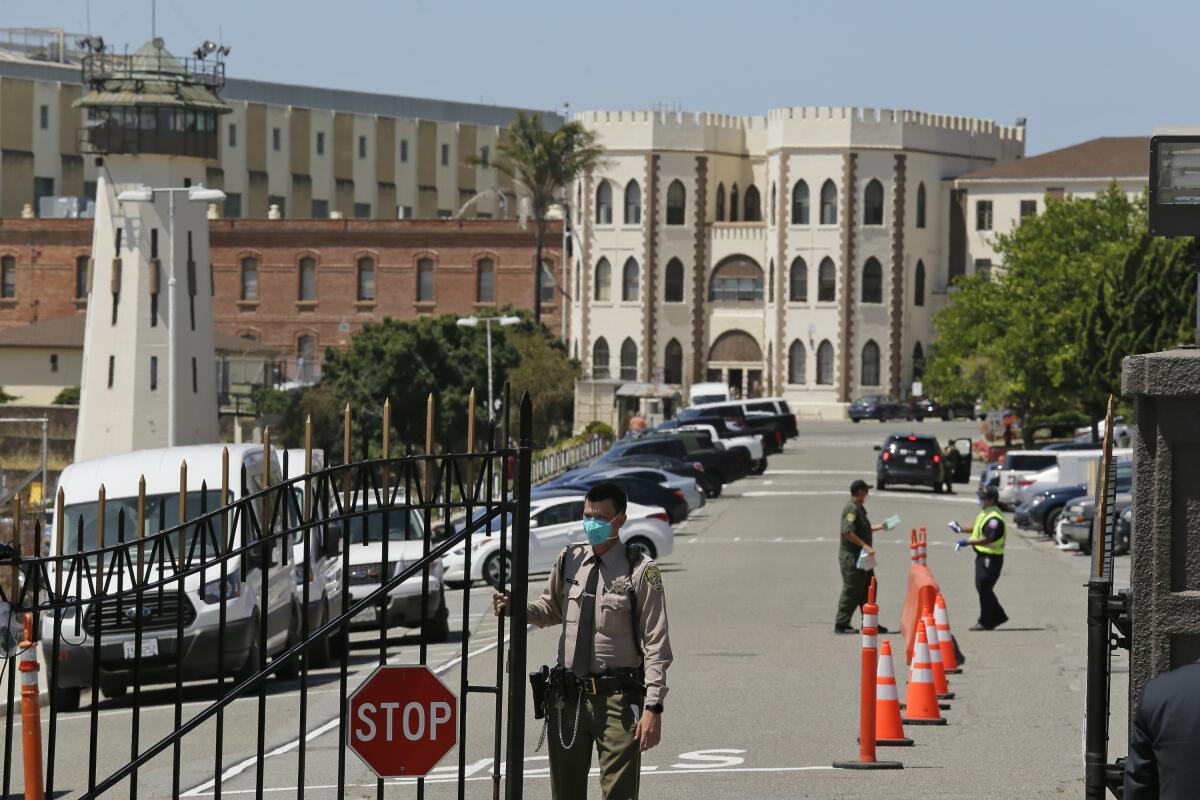Column: What if we actually were ‘tough on crime’ instead of tough on people?

- Share via
We have one of the highest incarceration rates in the world. One of the largest police forces. We have more guns than people. And yet, Americans are still scared.
Crime. Again.
This is not a rant about defunding the police or freeing people who have broken serious laws. This is about being “tough on crime,” which Americans are not. We just like to say that we are. But history shows we’re tough only on criminals.
That’s why the prison population has increased so much in the 50 years since President Nixon established the Drug Enforcement Administration and turned the short-lived war on poverty into his disingenuous war on drugs. From Nixon to Reagan to Clinton and then-Sen. Joe Biden — each one introducing policies billed as being “tough on crime” but in retrospect placing us on an unsustainable path of imprisonment that’s costing taxpayers nearly $300 billion a year.
“Tough on crime” is the legislative equivalent of the junk drawer in the kitchen. You know, the one that houses all the stuff we don’t know what to do with.
Have a lock with no key? Toss it in the junk drawer.
Christmas cards from people you kind of remember? Junk drawer. One chopstick? Toss it in. You’ll find the other one eventually.
We arrest the homeless for not having a place to sleep. We’ve arrested parents for enrolling their children in better schools. Last year Texas Public Radio reported that many Texans are too poor to afford a lawyer but make too much to be eligible to for a court-appointed one. What exactly are these people to do? Perhaps more important, what are we going to do?
Elected officials speak of being tough on crime, but watch their actions: Those folks introduce bills more focused on police than on teachers. Even though we know which investments are actually tough on crime, because we’ve got the data about the relationships among crime, education and poverty.
Right now, more than 50% of American households are dipping into their savings to survive. Ninety percent of us are splitting less than a third of the country’s wealth. While mulling those numbers over, here’s one more: An analysis by the Prison Policy Initiative found that before their arrest, the median income of incarcerated people was 41% less than their peers’. Last year nearly 50% of the country didn’t have $500 cash on hand for emergencies. And we wonder why our prisons are filled with people who can’t make bail.
We’re not “tough on crime.” We’re tough on people who are vulnerable. Usually poor. Disproportionately Black and brown. Voiceless. We tell ourselves we’re tough on crime, but there are cities that have outlawed giving food to homeless people. How exactly are we defining “crime” if that’s an infraction?
That’s definitely not the “crime” that voters are afraid of. But I get it. The gun violence and brazen robberies are scary. I have an aversion to sitting with my back to doors. Been that way my whole life, a byproduct of growing up in a crime-riddled area in the 1980s. Back then, crack was the drug destroying lives. Before that it was heroin. Today it’s opioids.
And just as we did in the ’70s and ’80s, we’re having a national conversation about being tough on crime through a lens that ignores the policies that foster crime and, with it, mass incarceration.
To really be tough on crime would require us to restructure corporate taxation to correct the growing wealth gap and save the shrinking middle class.
To be tough on crime would be to treat the lack of school counselors and modern technology in the classroom as an emergency.
To be tough on crime would be to recognize that it’s no accident our prisons are disproportionately filled with our poor and most vulnerable. That was the design.
But being truly tough on crime would take work. And compassion. Maybe even bipartisanship instead of grandstanding.
So we’re unlikely to get past “tough on crime” anytime soon.
More to Read
A cure for the common opinion
Get thought-provoking perspectives with our weekly newsletter.
You may occasionally receive promotional content from the Los Angeles Times.











